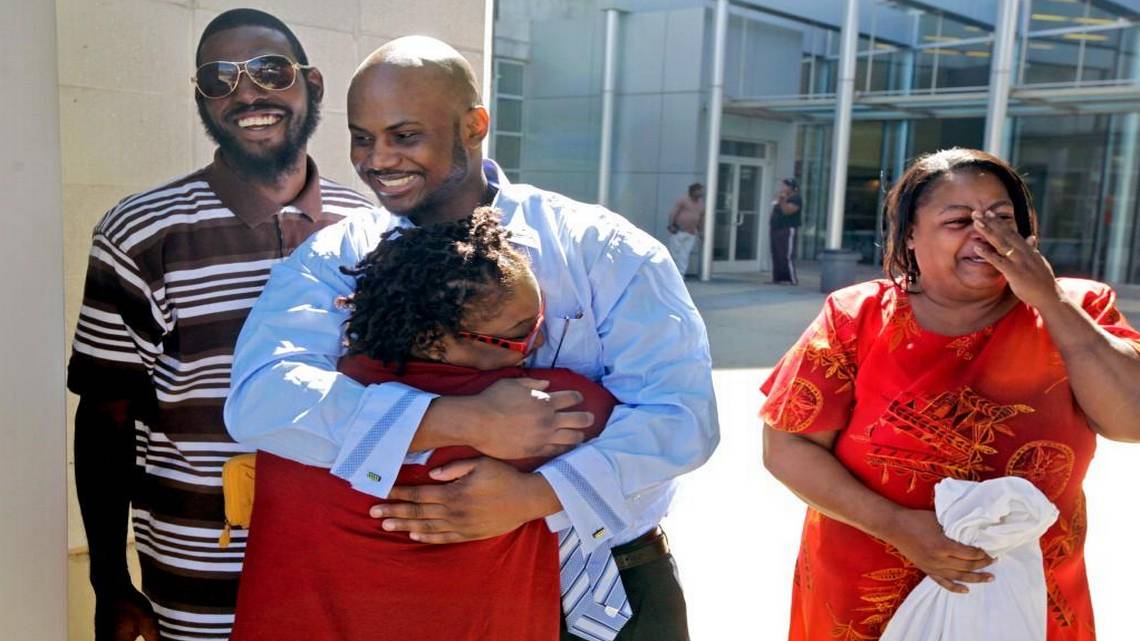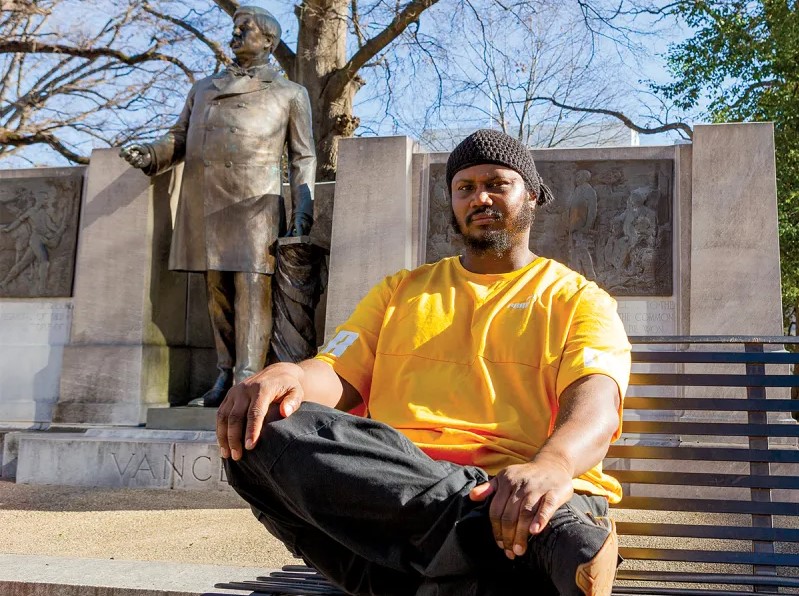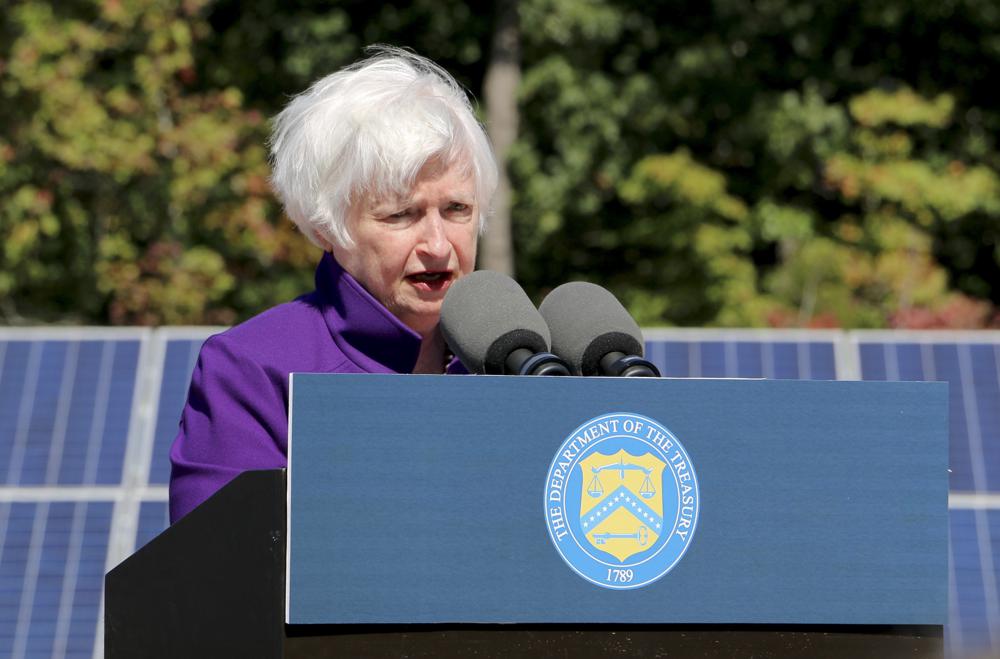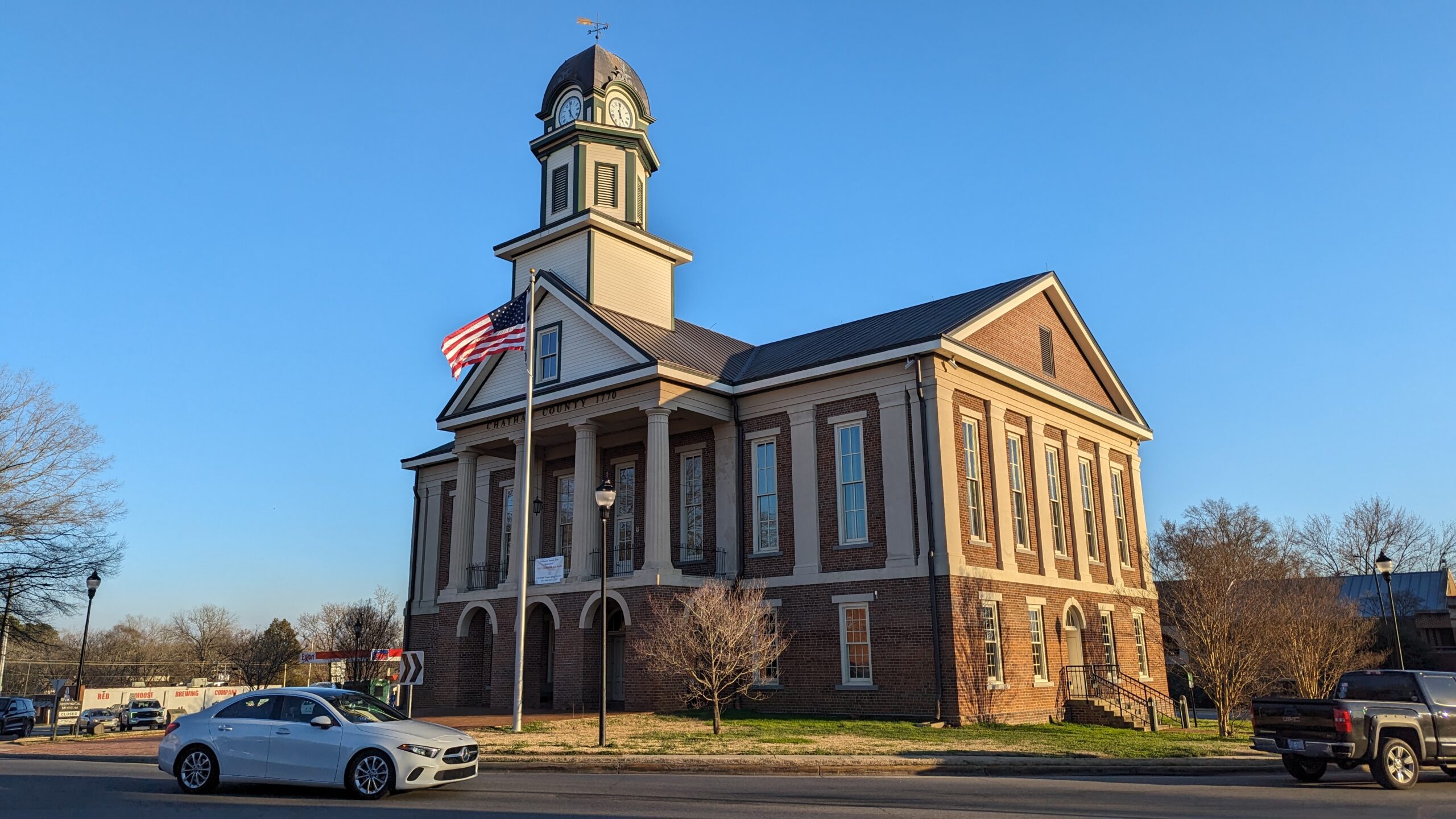Derrick Allen splits his time between different parts of the Triangle, but says he has a soft spot for Chapel Hill. After being released from prison in 2010, the Durham man says he was successfully able to live in an apartment and a room in a resident’s house for a little while.
“Chapel Hill has been fairly considerate,” Allen describes. “No other city has allowed me to get a home, but Chapel Hill has. That’s why I’m always up here.”
These days, however, Allen lives out of a car his mother bought for him. It’s also where he works, selling body oils from his trunk. He says he goes to gyms to take showers and must represent himself when communicating with the justice system because he cannot afford an attorney. Despite having had some odd jobs in the past and working to get a community college certification, he’s unable to earn a steady income – and his mother has run out of options too.
“She’s given all that she had to assist somebody who was wrongfully incarcerated,” Allen describes. “And the government has done nothing but dupe her and me.”
Durham is more than a decade removed from a series of high-profile criminal cases being overturned or tossed out due to Judge Orlando Hudson’s criticism of former District Attorney Tracey Cline’s misleading presentation of evidence. One of those cases is Allen, who was imprisoned for the 1998 death of a two-year-old he maintained he did not kill. After years spent in limbo, Allen’s case was overturned and eventually dropped. But now, he says his life is in limbo again trying to find ways to clear his name and earn a living.
Allen says despite his charges being dismissed in 2010, he has not received substantial compensation for his nearly 13 years in prison. His case was sent back to Durham County by the State Court of Appeals in 2012, which said it needed to be retried based on a misapplication by the judge. Allen says he was prepared to defend his innocence again, but the case was dropped entirely in 2016 based on the prosecution’s lack of witnesses initially used in Allen’s prior hearings.

Derrick Allen, his family and friends celebrate his release from the Durham County Jail in September 2010. Allen’s case was dropped permanently in 2016, but he says he still faces repercussions from his wrongful imprisonment. (Photo via Shawn Rocco/News & Observer.)
While that outcome means that Allen is a free man, he says society still treats him like a convict – and the lack of a retrial result has made it difficult to get financial damages from the state. Instead of $50,000 for each year wrongfully imprisoned, which Allen says prior people have received for their cases, he’s been left with no assistance to try and move on with his life.
“It’s really hard because I’m a man bestowed with the ability to reason and think,” says Allen. “I don’t have any type of dependency – I don’t drink, I don’t smoke, I don’t do drugs. And I’m sitting here really realizing, ‘I can’t even get [housing]. I can’t get a job.’”
Allen says he believes a pardon from Governor Roy Cooper would change this. He says that would be an acknowledgement of him being wronged by the criminal justice system and grant him a better opportunity in society. But after filing a petition in 2017 following Cooper’s election, Allen says there is no indication his case will be heard. The governor has issued nine pardons during his seven years in the office, with the latest shared this past December — and Allen not among them. While reporting on Allen’s story in January, INDY Week shared that Cooper’s press office would not comment on his petition, although the governor and his Office of Executive Clemency review every application. Cooper’s office did not respond to a request for comment.
The result for Allen is a battle with homelessness and a deep mistrust in the government systems he tries to communicate with.
“It hurts me because I actually went to prison for this,” he says. “I woke up every day for 12 years and seven months thinking I wouldn’t ever go home. I had 54 years [on my sentence].
“I feel like the governor probably doesn’t consider me as important enough to grant me the pardon,” Allen adds.

Derrick Allen poses for a photo in Raleigh near the state capital as part of a photo shoot with INDY Week in early 2023. (Photo via Brett Villena/INDY Week.)
Compensation from the state would provide Allen with a better opportunity to move from the Triangle and North Carolina – although he questions whether that would change his treatment by potential employers, police and others in charge. But he acknowledges that his current living situation is something he would not wish upon anyone.
“Maybe I should just leave here and try somewhere else,” he says. “But I can’t go [anywhere] without money. I don’t get unemployment benefits, I don’t get [Supplemental Security Income]…the government helps me with nothing.
“I’m hustling,” Allen adds, “like I was in prison.”
Featured photo via Pete James/WRAL.
Chapelboro.com does not charge subscription fees, and you can directly support our efforts in local journalism here. Want more of what you see on Chapelboro? Let us bring free local news and community information to you by signing up for our biweekly newsletter.




